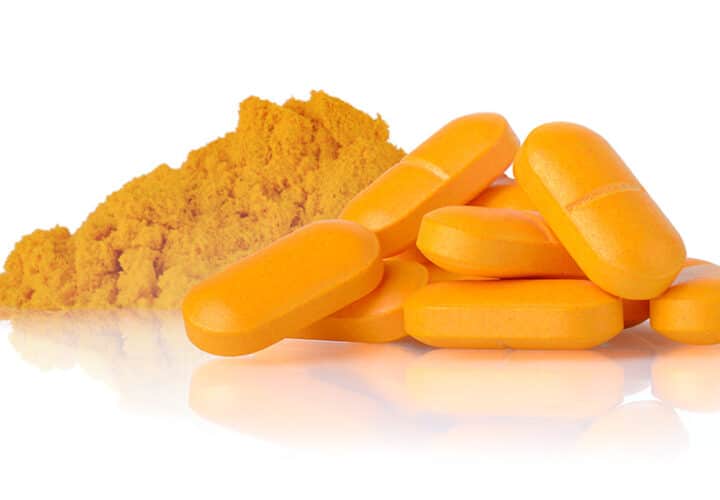Athletes use creatine supplements to help muscles mobilize their stores of energy. Researchers are looking into whether this natural substance could do the same for brain cells in the case of Alzheimer's.
When brain cells become starved of oxygen and sugar, they start dying. Many researchers believe that this process of neuronal death is a driving force behind Alzheimer’s disease. However, outside the brain, other tissues within the body are less picky about their fuel. If they don’t have access to oxygen and sugar, they might draw on a substitute. And some tissues go so far as storing massive amounts of other energy-generating compounds as backup.
Creatine is one such important energy source. This naturally occurring compound is derived from our diet and generated through biochemical activity in the kidneys and liver, and it’s critical for muscular function. In fact, creatine provides a power boost during physical activity when stores of oxygen and sugar run low: Rather than eating their own proteins to generate energy, muscles stock up on creatine, and draw on that supply to keep working. Accordingly, creatine has become one of the most common supplements used by amateur and professional athletes who are hoping to give their muscles even more fuel to power their workouts.
About 95 percent of the body’s creatine is stored within the muscles. The research is less clear-cut about the other five percent of creatine, and what it does in other regions of the body. Scientists theorize it might play some role in the brain.
What is creatine, and what do creatine supplements do for the brain?
Scott Forbes, an assistant professor at Brandon University who studies the effects of exercise and nutritional interventions in older adults, spoke with Being Patient about the importance of creatine.
“For a healthy brain, including learning and memory formation, energy is required,” said Forbes, adding that creatine can provide this energy and also reduce inflammation in the brain.
To bring more creatine into the brain, the supplement needs to hitch a ride on proteins, which have a limited capacity. Think of these proteins like a ride at an amusement park: Only a certain number of people can enjoy the ride at any given moment.
Just like astrocytes in the liver and kidneys, astrocytes within the brain are able to make creatine on their own, using protein machinery called enzymes. Creatine is then taken up by neurons, which help produce the energy needed to send electrical and chemical signals to each other. It may also serve important roles [in] protecting the brain and neuronal signaling, but these functions aren’t as thoroughly characterized. “During times of stress such as dementia or Alzheimer’s,” Forbes said, “the brain may rely more on creatine [from] outside the brain.”
Matthew Taylor, an assistant professor at the University of Kansas Medical Center, who studies how creatine impacts the brain, added that our current knowledge is limited and more research is required.
“Our group is using a special type of MRI to test whether a high dose of creatine supplementation for 8 weeks can increase brain creatine levels in patients with Alzheimer’s,” he said.
Taylor is also working on a clinical trial studying the impacts of creatine on brain metabolism in Alzheimer’s.
Of course, so far, there isn’t enough research to get the whole picture: It remains difficult to say whether creatine supplements meaningfully increase the levels of creatine in the brain.
Are creatine supplements safe?
About half of our daily requirement of creatine comes from the diet, while the rest is made within the body.
People looking for a little extra boost of creatine don’t necessarily need to buy supplements to get it: It can be absorbed through a protein-rich diet. It is naturally occurring in foods like red meat and fish.
However, you will see creatine supplements in the vitamins aisle: The most common creatine supplements is called creatine monohydrate, which is sold as a powder or in pill form.
The research so far does indicate that for most healthy individuals, when taken as directed, there is little danger to taking this supplement.
“There is minimal risk when creatine is ingested in the recommended dosages: five to 20 grams per day,” said Forbes. “If an individual has kidney disease, I would suggest speaking with their physician or a medical professional [before starting on creatine].”
Can creatine supplements help with Alzheimer’s dementia?
While creatine is often advertised and sold as a brain-boosting supplement, there isn’t a lot of credible, peer-reviewed, published research supporting those claims. While this supplement is well-studied in athletes, there is substantially less research conducted in an aging population. In fact, there are only two randomized clinical studies looking at the effects of creatine in healthy adults over the age of 60.
One study of 25 cognitively healthy older women found no benefit from creatine supplementation over 12 weeks. The other study looked at 32 healthy older adults, both men and women, finding that creatine supplements did appear to improve memory and cognition after one week.
“The evidence is still limited, but there is a growing body of promising evidence that creatine can improve cognitive function in older adults,” Forbes said. However, he noted, presently there is no completed research that examines the effects of creatine specifically people with Alzheimer’s — and results from healthy older adult populations wouldn’t necessarily translate.
That data may not be far off, however: Taylor and colleagues at the University of Kansas Medical Center are currently running clinical trials with people with Alzheimer’s disease to understand how creatine affects the brain’s metabolism and whether it may have some beneficial impact on cognition.
“I would say that there is emerging evidence supporting the use of creatine for cognitive health,” Forbes said. “Strong clinical trials are needed to better understand whether creatine does support cognitive health in aging.”





Thanks for all your Information. Is so Great to see all your Studies and Research that you Provide us.